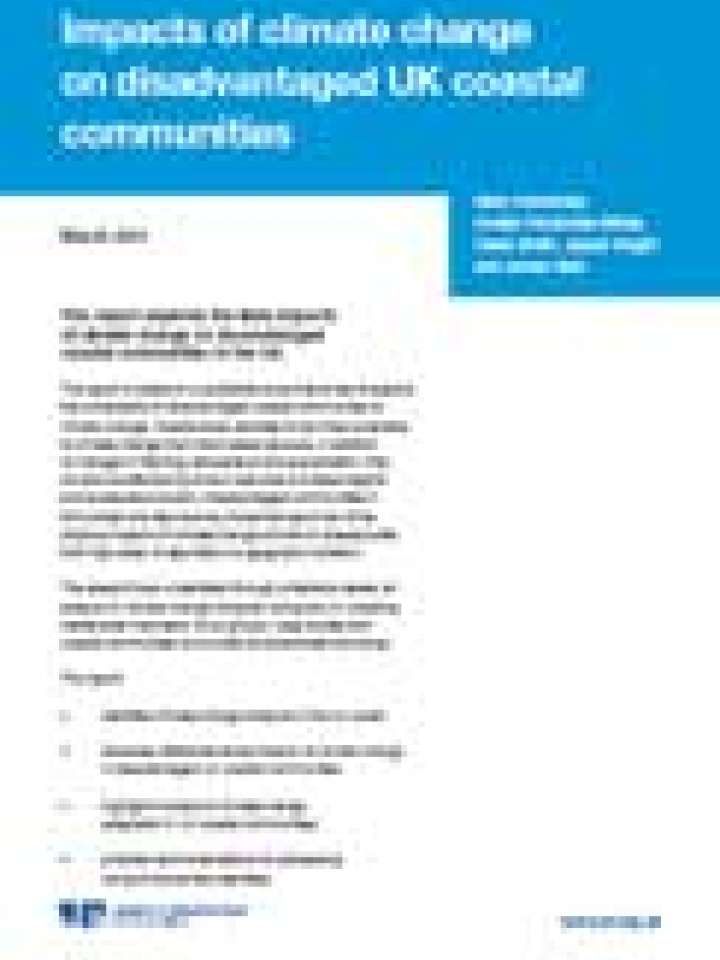Impacts of climate change on disadvantaged UK coastal communities
This study explores the vulnerability to climate change of communities in disadvantaged UK coastal areas, through research comprising a literature review and analysis of likely impacts, interviews, four case studies and a workshop. It also provides recommendations for improving coastal communities' resilience as part of national and local adaptation responses to climate change.
It focuses on the issues for disadvantaged coastal communities, defined in this context as those at risk of physical impacts of climate change and which face disadvantage because of socio-economic problems such as high levels of deprivation or geographic isolation. It considers the impacts of sea level rise and storminess, together with terrestrial processes acting at the coast; as well as extreme events associated with climate change (such as storms and flooding) which are likely to affect key public infrastructure such as health and emergency services and public transport along the coast. It also states that adaptation needs to be a key policy priority, along with better integration of policies, including regeneration, flood and coastal erosion management and emergency planning and calls for policy and practice for climate change adaptation to specifically aim to reduce disadvantaged coastal communities' vulnerability to climate change.
Explore further
